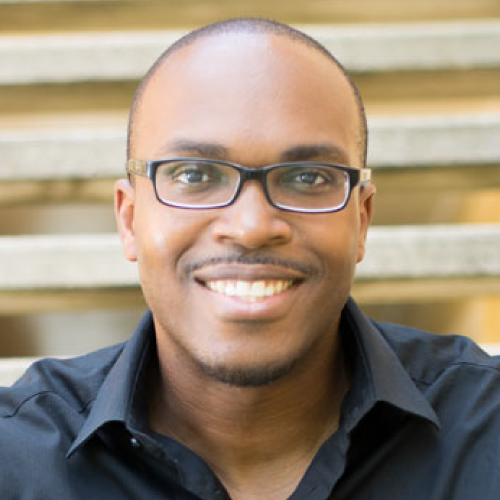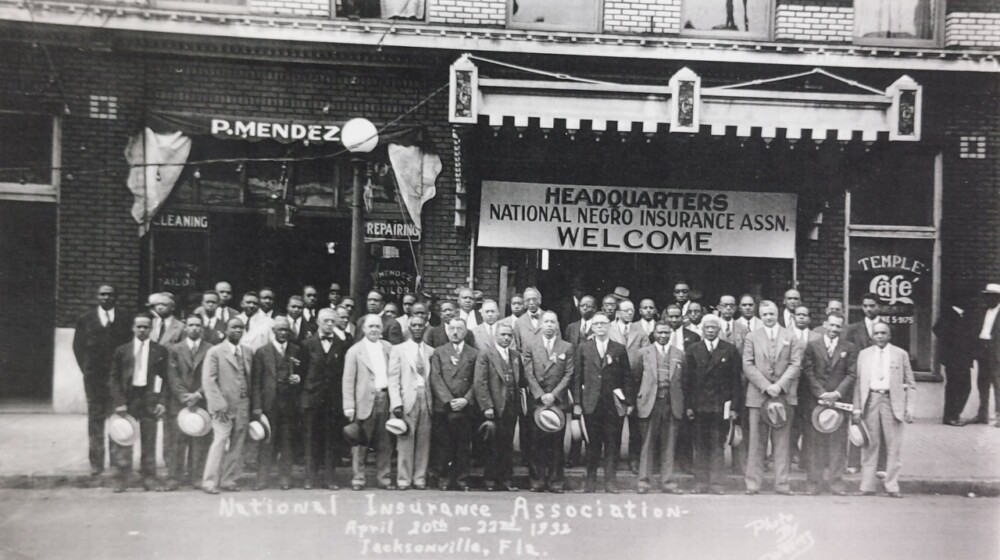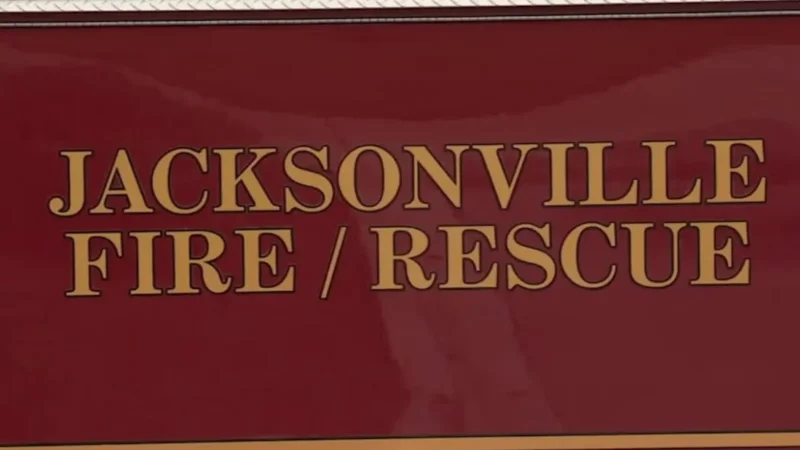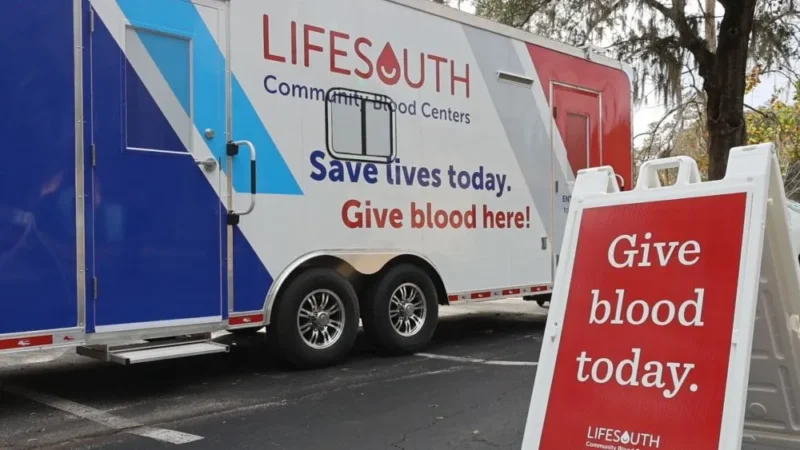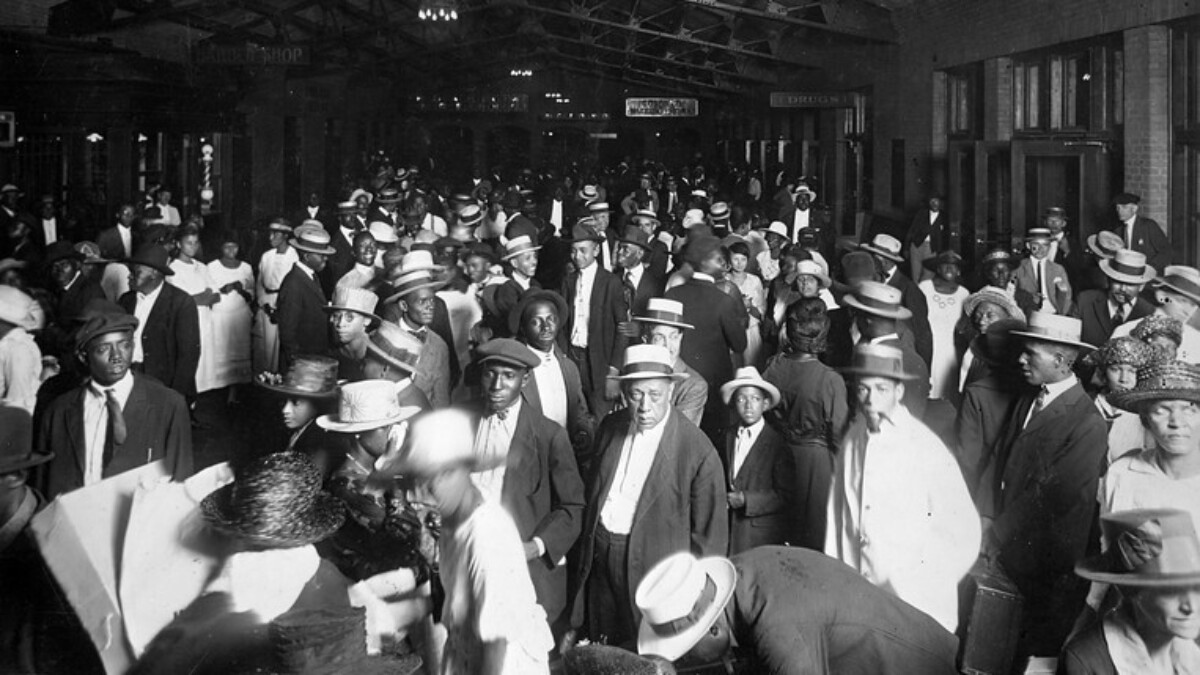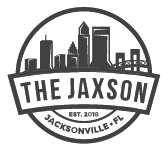
Established in 1901 and operating until 1990, the Afro-American Life Insurance Co. may be the most well known Black-owned business in Jacksonville’s history. However, it wasn’t the only large one. Here are five other early 20th century African-American owned businesses associated with the city.
1. Afro American Investment Co.

The Afro American Investment Co. was organized by Abraham Lincoln Lewis and William H. Lee during the height of the 1920s Florida Land Boom. Initially a subsidiary of the larger Afro-American Life Insurance Co., the company invested some of its resources in real estate, purchasing lots from tax sales and redividing older subdivisions for resurgent growth in Black communities
In 1925, the company developed the largest investment in the West Augustine neighborhood in St. Augustine. Containing 33 blocks and hundreds of small lots, the Afro-American Subdivision of the Dancy Tract, St. Augustine, Florida was formally filed in March 1925. By the 1940s, the development company had opened several residential subdivisions in Jacksonville and in West Augustine.
In 1935, after his retirement, Lewis began directing the purchase and development of American Beach as a seaside resort on Amelia Island in Nassau County.
2. Capital Trust & Investment Co.

Sylvanus Henry Hart was born in Darlington, South Carolina, on August 29, 1860. A Civil War veteran, his father Eli Hart moved the family to Jacksonville after the Emancipation. Growing up in Hansontown, Hart worked as a brick mason and building contractor before launching the Capital Trust & Investment Co. on October 6, 1902.
Located at 11 Cedar (now Pearl) Street, the Capital Trust & Investment Co. was Florida’s first Black-owned bank and began business with capital of $10,000. Hart served as president, E.W. Robinson as secretary, George H. Mays as treasurer, and Charles C. Davis, H.H. Green of Jacksonville and J.N. Clinton of Gainesville as directors. This endeavor proved successful, and by 1904 it held $20,000 in paid-in capital and had 500 depositors, 20 of whom were white.
By 1907, the bank had established exchange relations with several of the large New York banks and belonged to the Bankers’ Money Order Association, issuing money orders that were payable anywhere in the world.
The company’s success gave Hart a net worth of over $100,000 in 1912 (equivalent to $3,253,660 in 2025) and the family moved into a large home at 512 W. Ashley St. in LaVilla.
Taking advantage of his wealth, Hart spent six months in Europe and considerable time in Cuba and Mexico for pleasure. By 1924, Hart also owned a New York residence at 76 Edgecombe Ave. in Harlem. When Hart closed his bank in 1926, all of his depositors received their money in full.
Hart’s early 20th century pioneering paved the way for two additional Black-owned banks, the Woodman Banking Co. and Anderson & Co. Bankers, to open in Jacksonville before World War I. Sylvanus Henry Hart died at the age of 73 in 1933.
3. Citizen’s Industrial Insurance Company

Born in Nassau, Bahamas, Walter Wilfred Parker came to the U.S. as a student in August 1903. Settling in Jacksonville, he landed a job as an insurance agent for the Union Mutual Insurance Co. in 1908. After passing the bar exam, he resigned from his management position at Union Mutual to practice law.
However, encouraged to return to the local insurance industry, Parker organized Citizen’s Industrial Insurance Co. in Jacksonville in 1922 with J.A. Colyer, E. Vaughn, I.E. Williams, S.D. McGill, Rosa B. Matthews, L.F. Armitage, F.J. Thorington and I.A. White.
The company, located at 610 Broad St., rapidly grew to include 20 employees at its home office and 175 field force workers in 1928 and net assets in excess of $75,000, capital of $25,000 and over 25,000 policyholders in 1929.
The assets included a two-story brick office building at Broad and Duval streets in LaVilla. The upper floor was offices rented to African American tenants, including the home offices of the company. The ground floor was leased to white tenants operating a dry goods store, a meat market and a confectionery. The company also owned $2,000 worth of rental property in another section of the city, $1,500 in rental property in West Palm Beach, and $1,200 in real property in Bartow, Florida. While very successful, stress with the business proved to be detrimental to Parker’s health. During the years of rapid growth, Parker also continued to operate a separate law business. In 1931, looking to gain a better work-life balance, Parker selected to continue practicing law and sold his Citizen’s Industrial Insurance Co. in order to reduce his workload.
4. Florida Home and Investment Corp. (Union Investment Co.)

The Florida Home and Investment Corp. was established in the first decade of the 20th century. A Black-owned real estate development firm, the corporation was also known as the Union Investment Co. The real estate development firm owned 10,000 acres in Bradford County that was subdivided and sold as five, 10-, 20-and 40-acre farms. Producing garden vegetables and citrus was very profitable during the early 20th century. The corporation also owned large amounts of land inside the city limits as a part of its holdings.
In 1916, its officers and directors included several prominent Jaxsons and business colleagues living in Tampa, Durham, North Carolina, Rome, Georgia, Washington, Georgia, Opelika, Alabama, and Springfield, Massachusetts. Charles H. Anderson, president of the Anderson & Co. Bank, was one of the largest stockholders in the corporation. In addition, between 1917 and 1920, the company developed three separate subdivisions in St. Augustine.
For many years, the development firm’s headquarters was located at 441.5 Broad St. The influence of the Union Investment Co. extended beyond Florida. Investor G.H. Bowden relocated from Jacksonville to Savannah and by 1913 was known in that town as “The Real Estate Man,” routinely running ads in the Savannah Tribune paper claiming that there is no better investment on Earth than the Earth itself.
5. Union Mutual Insurance Co.

“It is our aim to build an institution that will enable the educated colored youth to find employment that gives him an opportunity to take advantage of his training.” – Henrietta Albertina Ewart Sumter, 1919
William and Henrietta Sumter relocated from Savannah, Georgia, to Jacksonville after the Great Fire of 1901. By 1902, the Sumters resided at 718 Bridge St. in LaVilla and William was employed as a brick mason. In 1903, William Sumter had partnered in the real estate business with W. B. Watson. Their Watson & Co. real estate business was located on the northeast corner of Bridge and Adams streets.
On February 1, 1904, the Union Mutual Insurance Co. was established with 10 employees. By 1910, Sumter’s Union Mutual Insurance Co. was considered to be one of the strongest Afro-American companies in the South with thousands of policy holders among all classes of people.
Two years later, Sumter was an influential figure with the Jacksonville Negro Business League. Along with Joseph Blodgett, A.L. Lewis, Charles Anderson, Lawton Pratt and others, the Jacksonville Negro Business League arranged for Tuskeegee’s Booker T. Washington to conduct a Florida tour ending in Jacksonville. Arriving by special train from Daytona Beach, Washington visited several schools and points of interest and attended a banquet in Old Fellows Hall. He also gave a speech to 2,500 citizens at the Duval Theatre.
In addition, Sumter was treasurer of St. Philips Episcopal Church on Pearl Street and secretary-manager of the Florida Home & Investment Corp. With the insurance company and real estate investment businesses booming, by 1916 the Sumter family had relocated from 534 West Church St. in LaVilla to the Sugar Hill neighborhood.
On August 27, 1918, William S. Sumter unexpectedly passed. His wife, Henrietta Albertina Ewart Sumter, a graduate of Cookman Institute, was elected by the board of directors to serve as the next president. By 1919, under her leadership, the insurance company had grown to employ 125 workers and more than 40 agencies throughout the state.
During the 1930s, the Union Mutual Insurance Co. merged with the People’s Industrial Insurance Co. People’s Industrial Insurance was another large Black-owned company headquartered in Jacksonville. After the merger, Henrietta Sumter served as the company’s assistant secretary. After that company was acquired by the Afro-American Life Insurance Co. in 1934, Mrs. Sumter eventually retired to her Sugar Hill property located at 1934 Jefferson St. While she left the business, her children continued to be employed with the Afro-American Life Insurance Co.
